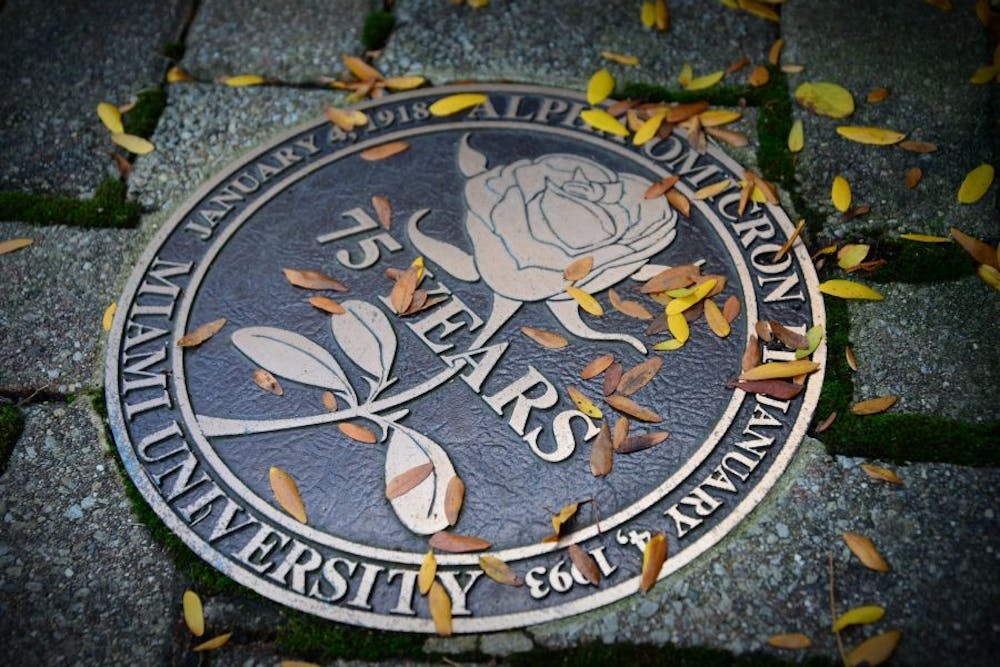By Rebecca Huff, Senior Staff Writer
Gender is a spectrum, much like the experience of transgender students on Miami's campus.
Alexx Apicella, a first-year majoring in women gender studies and social justice studies said his experience as openly transgender at Miami has been, for the most part, a positive one.
"My major kind of yields a certain type of person that comes into the field," he said. "So, I've [been] exposed to more open-minded people."
Yet not everyone has the same experience as Apicella.
"I would say [Miami] has a terrible climate when it comes to understanding transgender individuals and trans spectrum identities and providing access and space that is equitable," said Shevonne Nelson, coordinator of Miami's GLBTQ Services.
Transgender is just one aspect of the trans spectrum. The "T" in GLBTQ does not just refer to those who are transgender.
Transgender is when someone identifies with another gender that is different than their biological sex.
Although Apicella identifies as a male, he explained his hesitance about going into the male-labeled restrooms.
"I'm not exactly passible as a man so I could be very much subject to any sort of brutality or verbal abuse," Apicella said. "You never know quite what you're going to get when you walk into a restroom that is not one you physically look like you belong in."
Madelyn Detloff, associate professor of women gender studies, identifies as cisgender and prefers the pronouns she and her.
To identify as cisgender is when one's gender expression and identity agrees with that person's biological sex.
"If a bathroom is unsafe we need to find a way to make it less so, and gender policing is not the way to do it," Detloff said.
Gender policing is when you enforce what someone should be, act like or look like based on their sex.
"Ninety-seven percent of what we think about people is how they look," Nelson said.
Miami does not have restrooms specifically designed to be gender neutral but does have single stalled, or private/family, ones.
"There is some push and some initiative now to re-label [gender-specific restrooms] to be more specifically noted as just a restroom," Nelson said.
Nelson identifies as a cisqueer female and uses the Preferred Gender Pronouns (PGP) they, them and theirs.
Student organizations such as Prism and Spectrum raise awareness by offering a variety of educational programs and getting students involved through events like Trans Awareness in November and Out Week in October.
The GLBTQ Services also provide programs to raise awareness such as Safe Zone 101 and Trans 101, which are open to the campus and the community.
Safe Zone 101 is a two-and-a-half hour training program that teaches the history and language of the GLBTQ community and how to be an ally for the community.
Trans 101 is a three-hour training program that teaches the participants about the language and general knowledge of trans spectrum identities. The training also seeks to provide understanding between gender, gender expression and gender identity.
"Administrations can't change climate, simply by creating policy," Nelson said. "Administrations don't want drunk students but we have drunk students, administrations don't want sexual assaults but we have sexual assaults."
Ashley Cornett, the Prism communications chair, identifies as gender-queer and uses the PGP she.
"It's very dangerous to be openly transitioned," she said. "When people are calling Caitlyn [Jenner] 'he,' they mean to disrespect her, they mean to degrade her, they mean to deny that there can be a change of gender."
Denying someone of their individuality - of being who they are - can be extremely detrimental, as 41 percent of American transgender people have attempted suicide, according to the National Center for Transgender Equality and the National Gay and Lesbian Task Force.
Although having conversations about trans awareness is important, the conversations have to be relevant, Nelson pointed out.
"Even having [the Caitlyn Jenner] conversation is inadequate and inept because it doesn't relate to our students," Nelson said.
Caitlyn Jenner had the financial recourses to have the sexual transformation, Nelson said, but this is not realistic for many in the transgender community.
"With the exception of California, there is no healthcare for transitions. That's one of the reasons why I will never transition," Apicella said. "Hormones are incredibly expensive and no insurance will cover that. Top surgery can be incredibly expensive and no healthcare will cover that."
The National Center for Transgender Equality and the National Gay and Lesbian Task Force also reports that 19 percent of transgender people have been refused medical care and 2 percent have been assaulted in a doctor's office.
Healthcare is not the only obstacle. People who identify as transgender aren't protected under the Equal Employment Opportunity Commission (EEOC) either.
The EEOC is supposed to protect people from discrimination in the workplace, but only protects discrimination against race, color, religion, sex, national origin, age, disability or genetic information. There is nothing that protects people from discrimination against gender.
"I am out as trans, but if I am going to a job interview or in a work environment I would never ever have anybody know that I am trans because that would be putting, potentially, my job and my future on the line,"Apicella said. "It's terrible that I have to pretend to be someone else in order to keep a job."
At the end of the day, though, Apicella said labels don't matter.
"People are who they are, there doesn't have to be a word for it."

